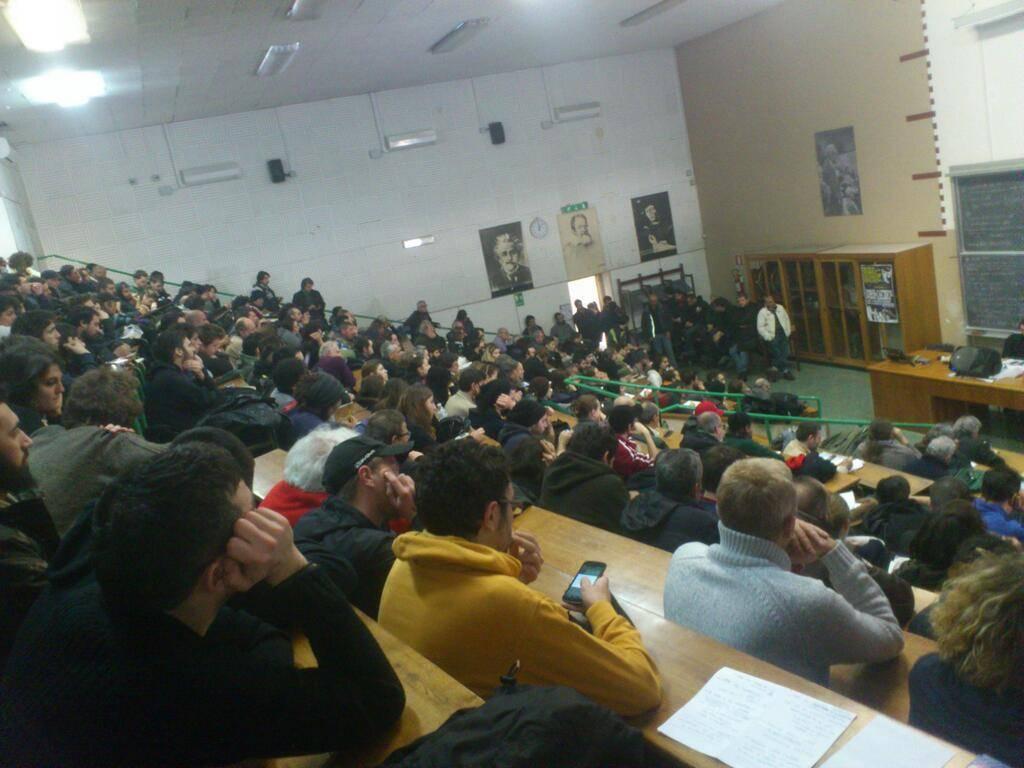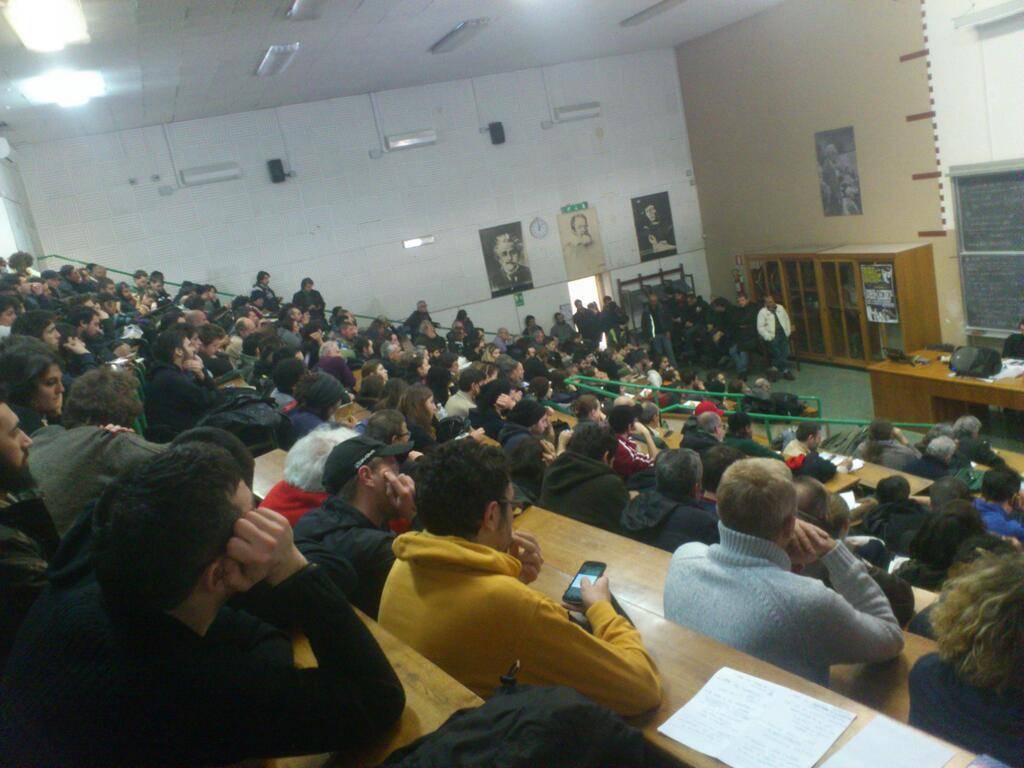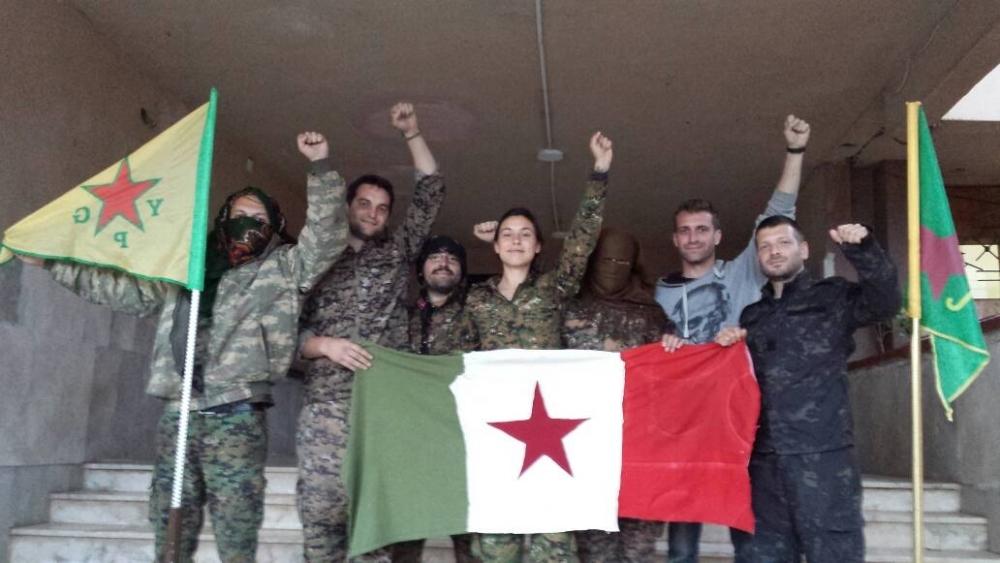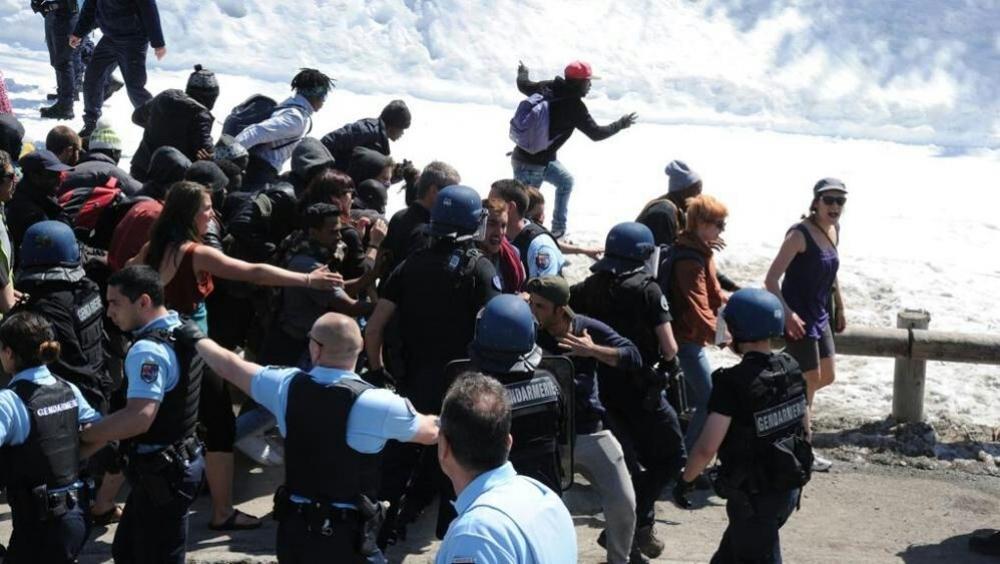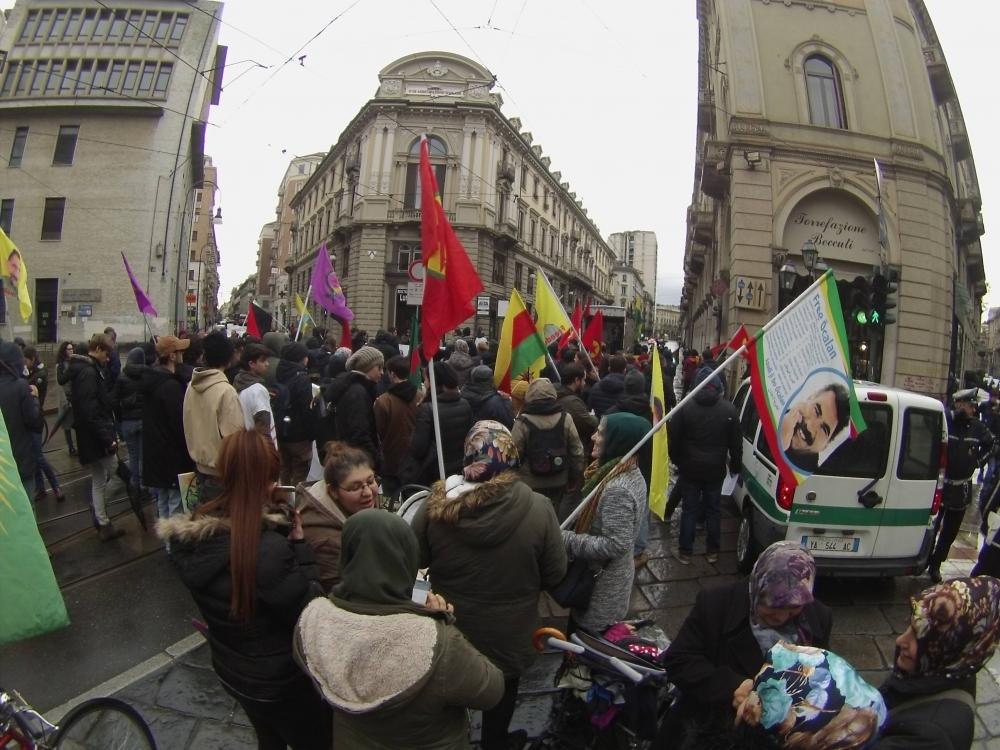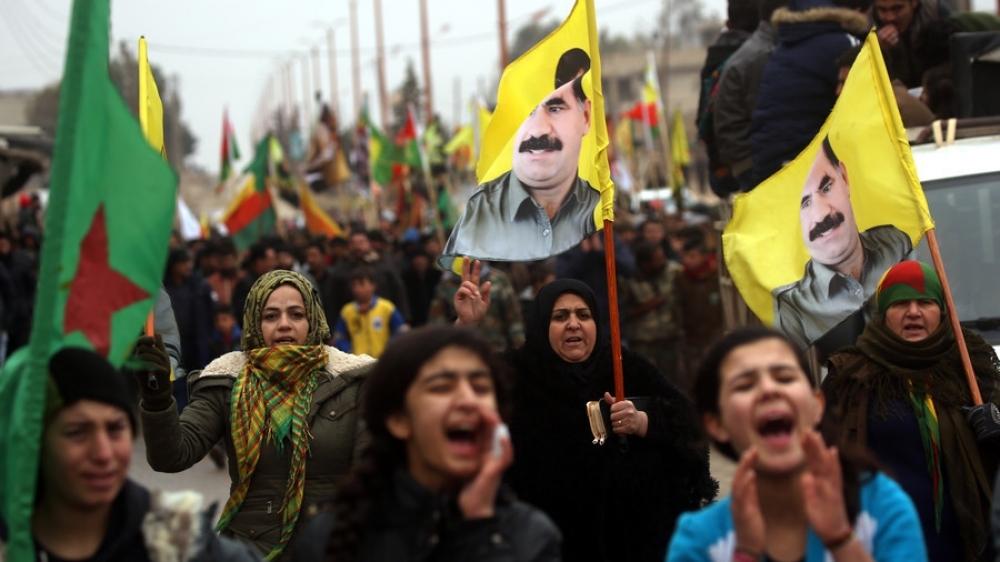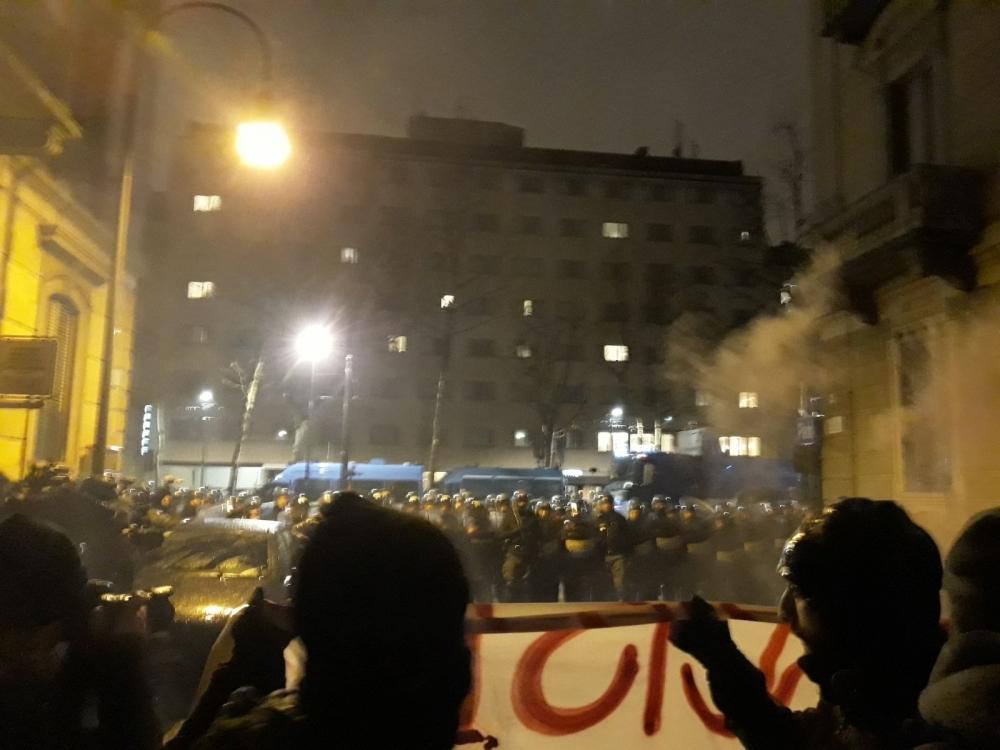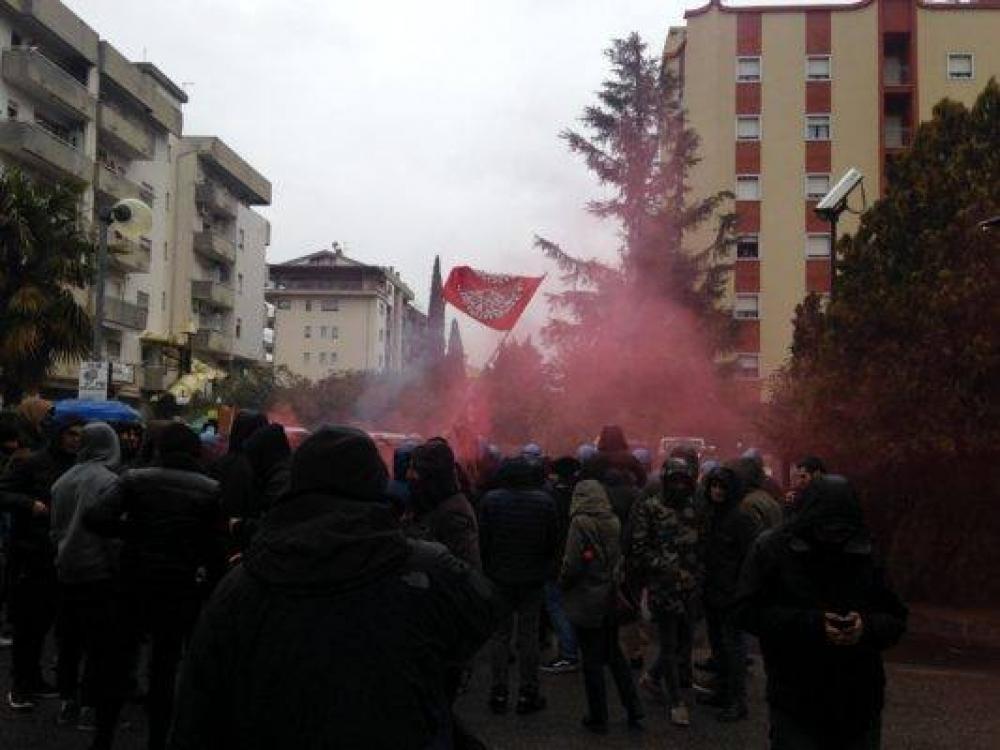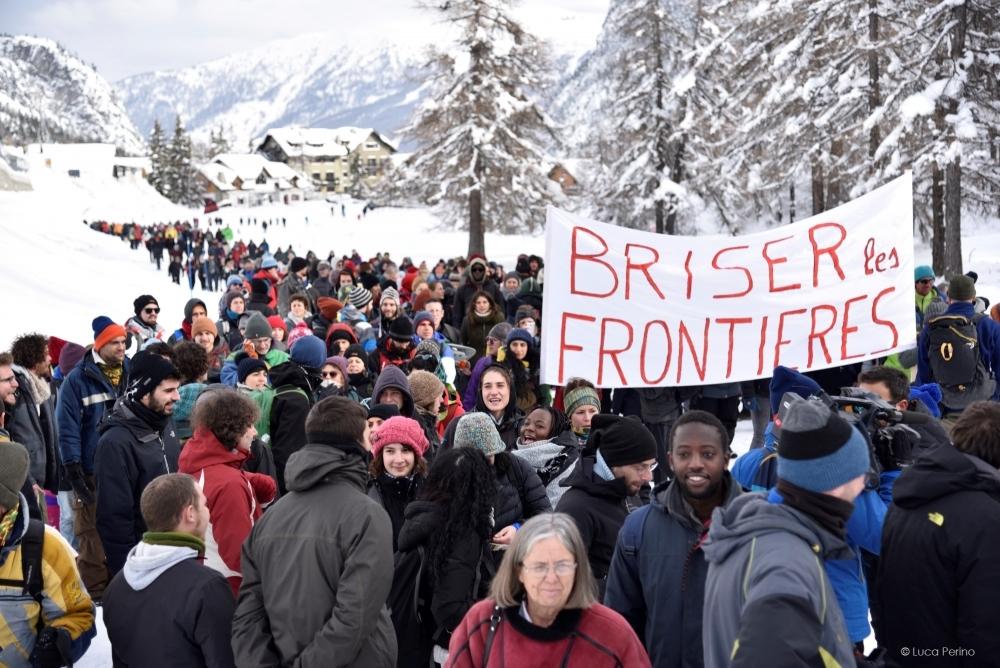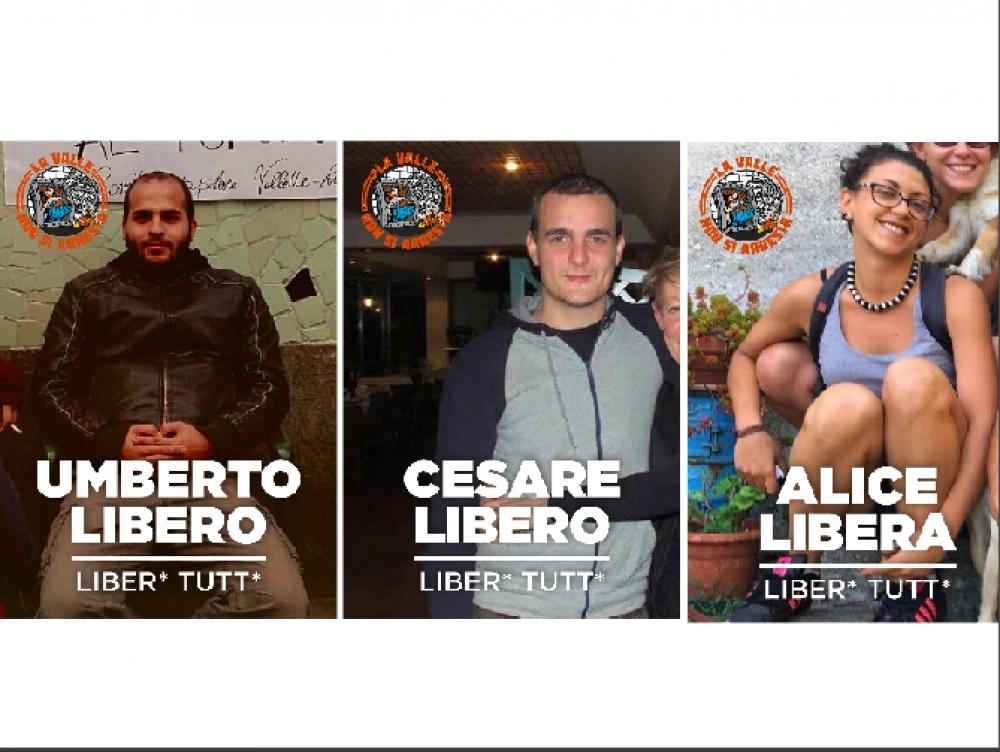The days of October 18 and 19 last year represented an important starting point of a path that remarkably strenghtened struggles in the territories. The will to revamp, exactly starting from the great wealth of the generated conflicts an independent and lively agenda met with an unanimous consensus in the assembly today. In particular, the different social experiences and struggles that produced the autumn uprising want to try, by taking all the responsibilities, the construction of a common space of conflict, able to go clashing once again against EU and Troika-imposed austerity policies, implemented by national governments.
The mestizo square of Porta Pia expressed a method and some practices from which one cannot and must not step back anymore. Starting also from this consideration, the proposal of a national demonstration next April 12 in Rome takes shape. A march to return to lay siege to the seats of power, always stressing with greater strenght and effectiveness the issue of the use of resources, besides the main one of income.
The management of money and income (that we will analyze as a common political discourse and proposal of practices in the Bologna Febraury 15 convention already) will be at the core of the mobilization and the struggles that, beginning with the next weeks, will build the demonstration of April 12 and the following protest at the European summit on Youth Unemployment scheduled in the next months, perhaps in the month of July.
The housing struggle movements, students, precarious workers, migrants, territorial struggles, workers’ resistences, antagonist unions, social centres partaking in this composite and common path mean to achieve the needed accumulation of forces to topple a development model increasingly based on precarious work, privatizations, exploitation, devastation of the territories, pillaging of common goods. This model finds in the Expo in Milan a plastic representation of how, through the management of the crisis, the rules of market and profit are imposed to everyone in an increasingly heavy and all-encompassing way. Inside this thinking, the Job Act proposal brought forward by Matteo Renzi and the DP [1] represents a harsh restate,emt of precarity and exploitation as the sole possible perspective. As the agreement on trade union representation achieved among Confindustria and CGIL, CISL and UIL [2] vouches for the establishment of a veritable authoritarian regime on workplaces, with the denial of any space and chance to act and the very soppression of the voice of the workers. In general it looks necessary, above all, to determine a clear break with the blackmail established about the issue of productivity and of the alleged possibility of generating new employment. A blackmail that compels our lives to bend over, in an endless spiral, to the interest of the business and the capital and from which we must back out through new paths and practices of re-appropriation.
In this picture, it is also necessary to go beyond the battle of the have-nots between salaried labour and small freelance business, by reversing the discourse imposed from above, for a taxation of the big property and of financial and real estate rent.
The day of May 1st is assumed as a key one, with the opening of a generalized conflict against the Expo, a sanctuary of precarity and an overkill of concrete, and freeze the Piazza San Giovanni concertone [3] in Rome, managed by the trade union consociationalism by saving an important square from a shameful commodification of rights. A day that we want to be inclusive and antagonist at the same time, connected with the numerous European and global squares.
The mestizo character of our paths, the direct protagonism of the migrants and the refugees, beyond and against any bleeding-heart and charitable logic finds one of its strongest expressions in the struggles for the closure of the CIEs and the CARAs [4], for freedom of movement and the break-up of any bond between residency and work, for equality and rights against any form of racism and fascism. Therefore, the demonstration of February 15 for the closure of Ponte Galeria, that of February 16 against the CARA in Mineo and the March 1st initiatives become constituent steps of the new uprising and of the paths of transformation of our modernity. The cancellation of the Bossi-Fini and of the Turco-Napolitano laws represent decisive programmatic elements as the guarantee of income, the housing right, the re-socialization of essential services. Furtherly, as a common step, the day of struggle against the repression of the No Tav movement scheduled for February 22 and the construction of a convention and a national demonstration for March 14 and 15 in Rome, on the theme of repression of social struggles are assumed.
Beside the main stages of mobilization and conflict of the movements, against the “lords” of precarity and austerity, precious moments of debate and in-depth analysis will be organized on the whole national territory – that will be showing the measure of the great effervescence living in the territories. Among these we recall the next February 15 in Bologna on the issue of the use of resources; on February 21 in Milan to discuss about consumption, tariffs, detachments, arrearages; on March 1 and 2 in Naples a national meeting of the Abitare nella Crisi network. Through these dates and others a shared and common work process would have to develop, towards the demonstration of April 12 and the next mobilizations, that could enhance and give new impulse to the struggles and reappropriation processes.
Rome, La Sapienza University_ February 9, 2014
[1] Under the Job Act proposal by Matteo Renzi and his Democratic Party, for the first three years of employment of new workers the bosses would be exempted from paying any social security contributions for their employees (with the State covering these expenses) and could sack them as they like – as these workers would not be granted with the safeguards now enjoyed by many categories under Article 18 of the Workers’ Statute.
[2] Confindustria is the main Italian bosses’ union. CGIL, CISL and UIL are the three mainstream, bureaucratic Italian trade unions; though formally independent, they hail from the leftwing constitutional parties’ tradition.
[3] Literally “big gig”: a yearly multi-band concert event held on May 1st in Rome and sponsored by mainstream trade unions. This year it would celebrate its 24th edition.
[4] Originally devised by President Giorgio Napolitano when he was Minister of the Interior, the CIEs (centri di identificazione ed espulsione) actually work as migrant detention centers, as any foreign person illegally entering Italy can be imprisoned there up to 18 months. Poor care (the system is managed through lowest-bid tenders to the Red Cross, Catholic Church organizations and LegaCoop cooperatives), poor health conditions, police abuses and little external access by independent lawyers make them veritable XXI century concentration camps. The CARAs (centers of aid for asylum-seekers) provide a more temporary detention facility, still not safe from abuses and mismanagement
